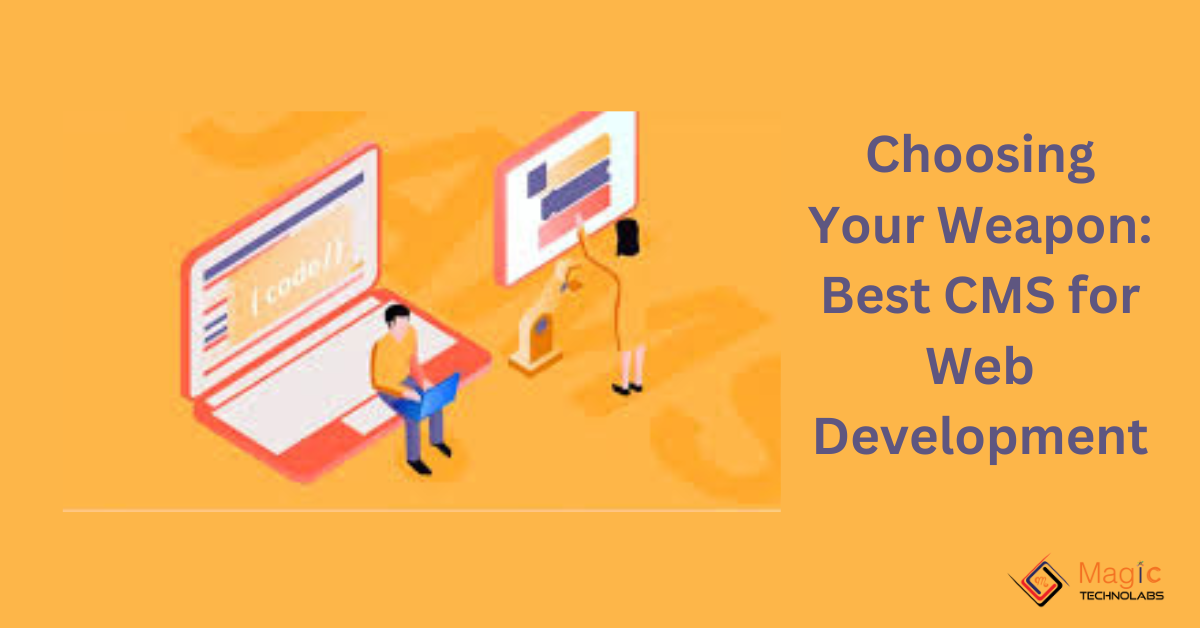In the Wild West of web development, your CMS (Content Management System) is your trusty weapon. It empowers you to build powerful websites, but with a vast arsenal of options, choosing the right one can feel like a daunting task. Fear not, developers! This guide will help you navigate the landscape and select the perfect CMS for your next project.
Understanding Your Needs:
Before embarking on your quest, consider these factors:
Project Scope: Is it a simple blog, a complex e-commerce platform, or something in between?
Technical Expertise: How comfortable are you with coding and customization?
Team Dynamics: Are you a solo developer or collaborating with a team?
Scalability: Will your website need to grow in size and complexity over time?
Top CMS Contenders:
Now, let's explore some of the most popular CMS options:
WordPress: The undisputed king of user-friendliness. WordPress shines for blogs and basic websites with its vast plugin library and extensive community support. It may lack customization power for complex projects.
Drupal: A robust and flexible option for developers seeking more control. Drupal excels in large-scale projects and complex functionalities, but requires a steeper learning curve.
Joomla!: A balance between ease of use and customization. Joomla! offers a user-friendly interface with the potential for extensive customization through extensions.
** headless CMS (e.g., Contentful):** A decoupled approach where content is managed separately from the front-end. Headless CMS offers maximum flexibility for developers building custom applications or websites with unique needs.
Beyond the Big Names:
There are additional options for specialized needs, like Magento for e-commerce or Umbraco for large-scale enterprise websites. Research these options to see if they align perfectly with your project requirements.
The Final Showdown:
The "best" CMS is subjective. Weigh the pros and cons of each option based on your specific project. Here are some additional factors to consider:
Security: Choose a CMS with a strong security track record and regular updates.
Community Support: A large and active community can be invaluable for troubleshooting and finding solutions.
Customization Potential: Consider how much control you need over the website's look and feel.
The Perfect Choice Awaits:
By understanding your project needs and evaluating your options against those needs, you can select the CMS that best empowers you to build a successful website. Remember, your perfect CMS is out there, waiting to be your trusted companion in the web development wilderness. Now go forth, developer, and build something amazing!
















